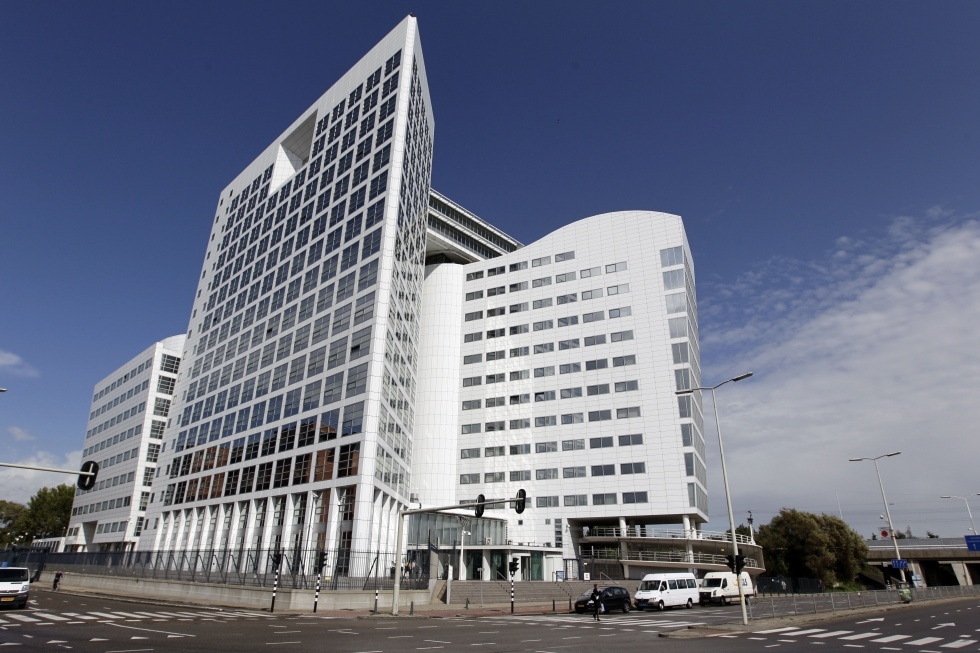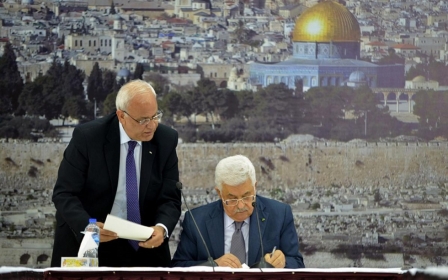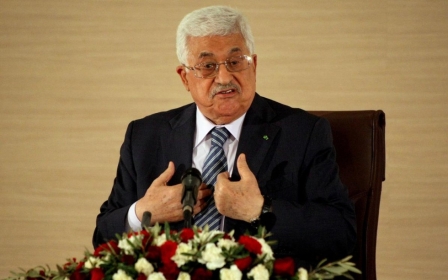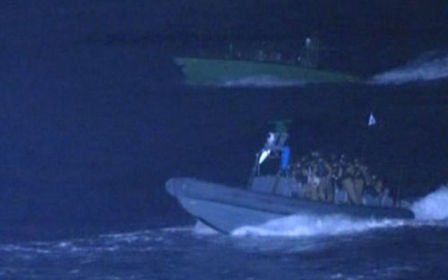ICC facts and charges

The International Criminal Court (ICC), which Palestinian president Mahmud Abbas has applied to join on Wednesday, has a mandate to try individuals for genocide, war crimes and crimes against humanity.
Abbas signed Wednesday the Rome Statute, the ICC's founding treaty, kicking off the process of joining The Hague-based court, where the Palestinians could sue Israeli officials for war crimes in the occupied territories.
Here are key facts on the court and its indictments.
HISTORY
The ICC was created through the adoption of its founding Rome Statute in July 1998, and started operating in The Hague in July 2002.
To date, 122 countries have signed up, including 34 from Africa.
The United States is one of the few Western countries that has not joined. Neither Russia, China nor Israel have ratified the Rome Statute.
The court's president is the South Korean Sang-Hyun Song and its chief prosecutor is Fatou Bensouda from Gambia.
JURISDICTION
The ICC's jurisdiction is complementary to that of national courts, and it can only act when a member state is unwilling or unable to do so.
REFERRAL
A state party may refer crimes within the court's jurisdiction to the prosecutor for investigation, as in the case of Congolese rebel leader Jean-Pierre Bemba, referred by the Central African Republic in 2004.
Cases may also be referred by the United Nations Security Council, such as in Libya. There Moamer Gaddafi's son Seif al-Islam is wanted by the ICC for crimes against humanity for his alleged role in the repression of the popular uprising which led to the fall of his father's regime.
The prosecutor can also initiate her own investigations with permission from the judges, such as in the case of Kenya's 2007-2008 post-election violence.
A country that has not accepted the Rome Statute may accept the court's jurisdiction on a case-by-case basis such as in the case of Ukraine for crimes committed before and during the fall of ousted president Viktor Yanukovych.
PALESTINE
The Palestinians in 2009 asked the ICC's prosecutor's office to investigate alleged war crimes and crimes against humanity committed by the Israeli military in Gaza during Operation Cast Lead in 2008-2009.
The prosecutor's office said the Palestinian Authority's status at the United Nations meant that it could not sign up to the Rome Statute, leaving it to the "competent organs of the UN" to decide on Palestine's future status as a state.
The UN's upgrade of Palestine to a "non-member observer state" in November 2012 as well as its joining of the Rome Statute on Wednesday will allow the Palestinians to file an application as soon as the treaty enters into force.
The move to join the ICC however is strongly opposed by Washington and Israel, which have warned that joining the court would expose the Palestinians themselves to prosecution.
Middle East Eye propose une couverture et une analyse indépendantes et incomparables du Moyen-Orient, de l’Afrique du Nord et d’autres régions du monde. Pour en savoir plus sur la reprise de ce contenu et les frais qui s’appliquent, veuillez remplir ce formulaire [en anglais]. Pour en savoir plus sur MEE, cliquez ici [en anglais].




